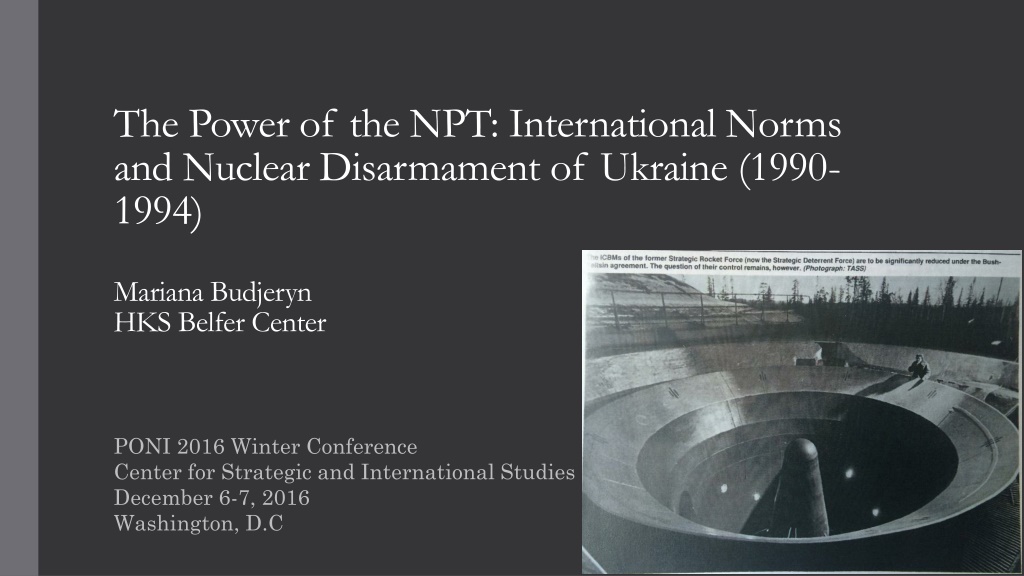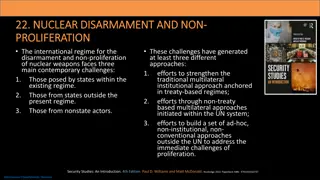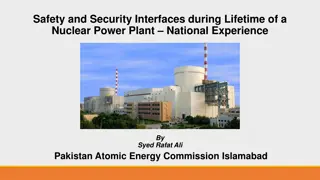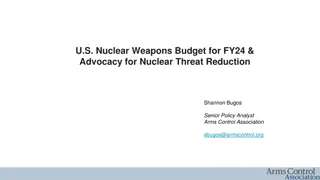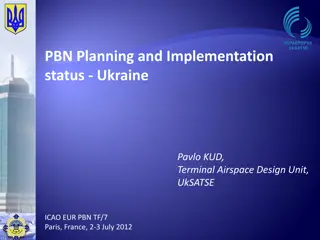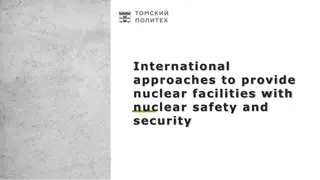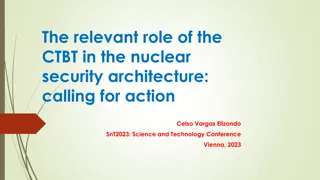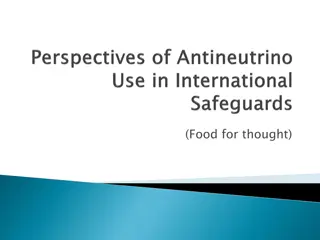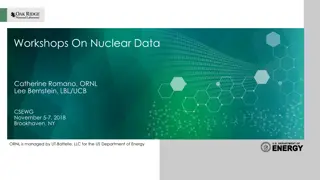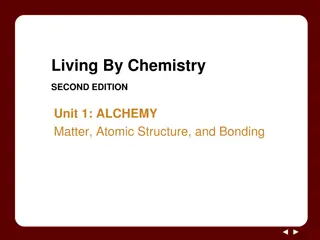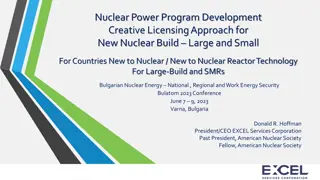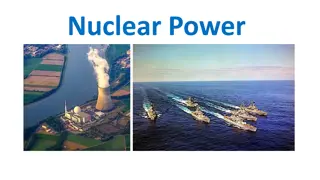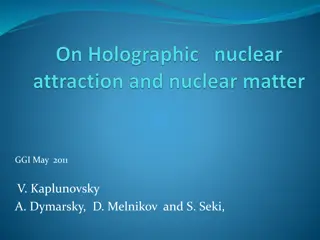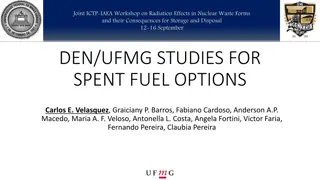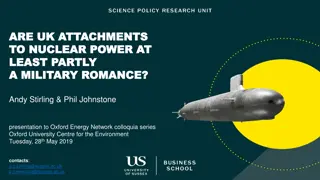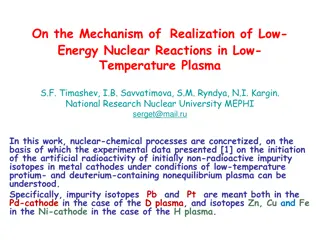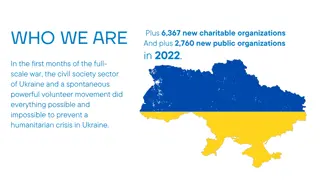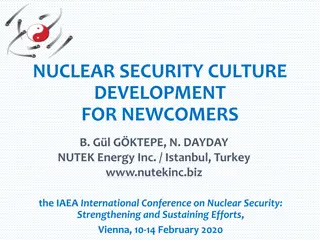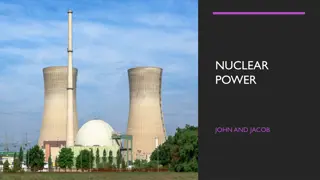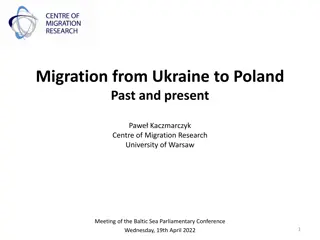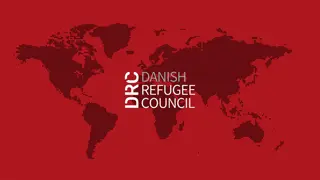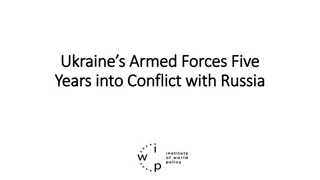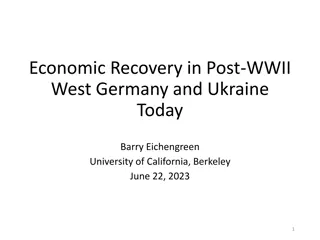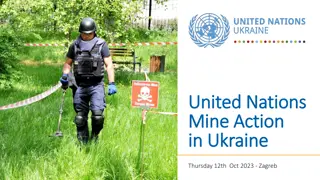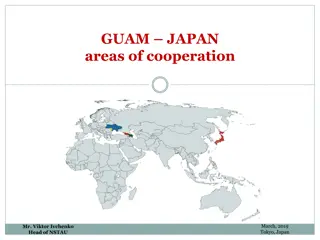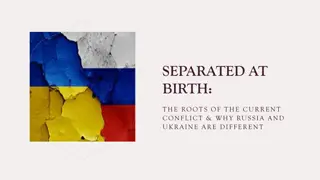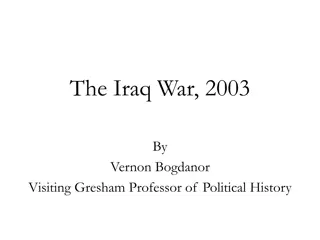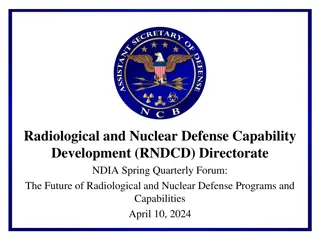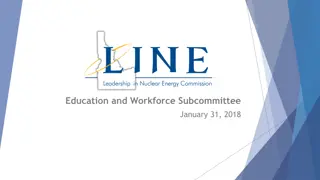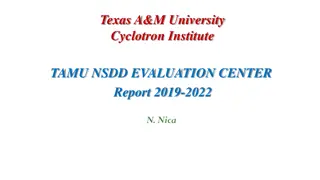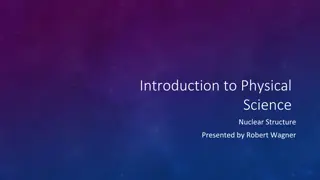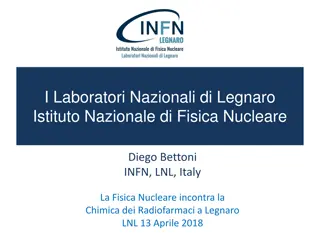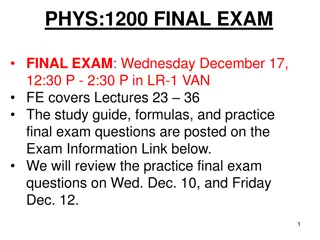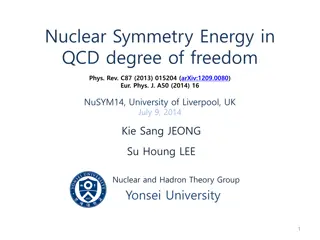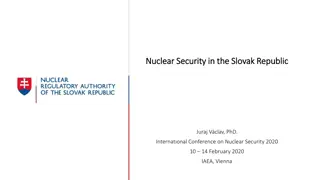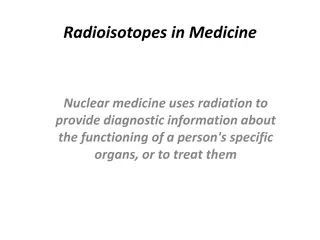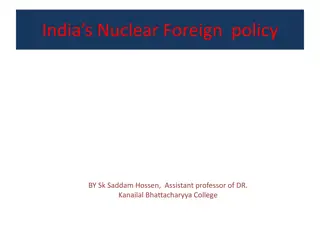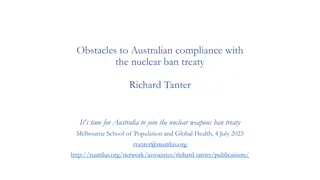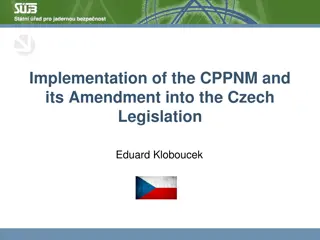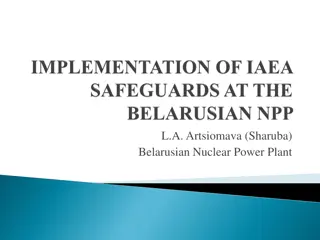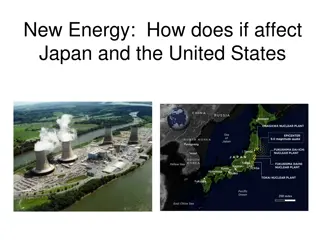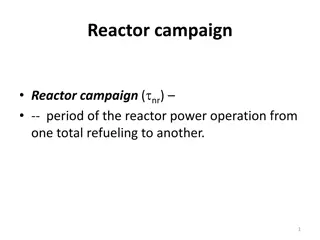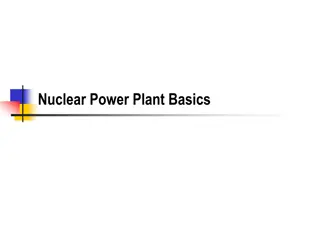The Power of the NPT: International Norms and Nuclear Disarmament of Ukraine (1990-1994)
Exploring the role of the Non-Proliferation Treaty (NPT) in nuclear renunciation decisions, this study investigates the relationship between global nuclear abstinence and the NPT through a case study of Ukraine, Belarus, and Kazakhstan from 1990-1994. It delves into the challenges of Soviet dissolution, nuclear inheritance among non-Russian successor states, and the impact of the NPT on proliferation dynamics.
Download Presentation

Please find below an Image/Link to download the presentation.
The content on the website is provided AS IS for your information and personal use only. It may not be sold, licensed, or shared on other websites without obtaining consent from the author. Download presentation by click this link. If you encounter any issues during the download, it is possible that the publisher has removed the file from their server.
E N D
Presentation Transcript
The Power of the NPT: International Norms and Nuclear Disarmament of Ukraine (1990- 1994) Mariana Budjeryn HKS Belfer Center PONI 2016 Winter Conference Center for Strategic and International Studies December 6-7, 2016 Washington, D.C
Issue at Stake and Research Question World-wide nuclear abstinence and the NPT: what is the relationship? Existing literature is contradictory: NPT is unimportant (Realists) NPT provides some benefits to states (Regime theorists) NPT one of the factors in nuclear-decision making (Domestic politics) NPT constrains supply-side of proliferation (Nonproliferation studies) NPT works through persuasion and social interaction (Constructivists) What is the role of the NPT in decisions of nuclear renunciation? How does the NPT affect the demand-side of proliferation? 1
Cases and Method Ukraine, Belarus, and Kazakhstan (1990-1994) Born nuclear: supply preceded demand Expected to denuclearize and join the NPT as NNWS Follow divergent paths, why? Security, bargaining, coercion explanations (Potter 1995, Miller 1994, Reiss 1995) Understudied, not considered specifically in relation to the NPT Concept development and in-depth comparative case study Normative mechanisms Untapped archival sources from Ukraine, Belarus, and Kazakhstan 2
Nonproliferation Challenges of Soviet Dissolution 1) Physical security: loose nukes and brain drain 2) Proliferation vs state succession Ukraine, Kazakhstan, and Belarus claim to be successors of the USSR Whose NW in non-Russian Soviet successor states? What claims could the non-Russian republics make in regards to nuclear inheritance? Who would carry out Soviet arms control commitments: START, CFE, NPT? 3
Nuclear Inheritance of Non-Russian Successor States Weapons Systems Belarus Kazakhstan Ukraine 54 104 176 ICBMs SS-25 mobile SS-18 (MIRVed with 10 wh each) Total 1,040 wh 130 SS-19 (MIRVed with 6 wh each 46 SS-24 (MIRVed with 10 wh each) Total 1,240 wh 40 Strategic bombers 44 TU-95MS 370 AS-15 ALCMs 19 TU-160 Blackjack 25 TU-95MS Bear Armed with 588 AS-15 ALCMs <2,600 < 1,000 Tactical NW Research and experimental reactor HEU Semipalatinsk NTS Uranium mining 2 research reactors Nuclear fuel fabrication HEU ICBM factory ICBM guidance systems Uranium mining 3 research reactors Heavy water plant HEU Other 4
Ukraine: From Renunciation to Ownership July 16, 1990, Declaration of Sovereignty Undertakes to become, in the future, a permanently neutral state, which does not participate in military alliances and adheres to three non-nuclear principles: not to maintain, produce or acquire nuclear weapons. Chernobyl Separation from Moscow Attempts to join the NPT as NNWS August 24, 1991, Declaration of Independence Subordinated all military units to the Rada (parliament) Claimed all assets on Ukraine s territory as its property Moves to assume partial control over NW on its territory 5
Ukraine: Three Visions on Nuclear Ownership Nuclear ownership: At the time of the dissolution, Ukraine, as a successor state of the Soviet Union, had an equal right to become a nuclear weapons state, a right it chose not to fulfill. 1. Entitlement to compensation (President and Ministry of Foreign Affairs): financial compensation and security guarantees 2. Nuclear hedging (national-democrats in the Rada): Ukraine a de facto and de jure nuclear state, should ratify START but not join NPT, retain 46 SS-24s, use NW for political leverage 3. Nuclear deterrent (Gen-Maj. Volodymyr Tolubko): in close cooperation with Russia 6
Ukraine: From Ownership to Renunciation Ukraine s inability to legitimate nuclear ownership as a new category and join the international community on good terms Going against nuclear zeitgeist and the way international order works Clinton administration: combination of negative and positive inducements Case Studies: Soviet Dissolution Photo credit: Diana Walker/Time Concessions Security assurances from Russia and US Compensation for HEU in Ukrainian warheads US President Clinton, Russian President Yeltsin and Ukrainian President Kravchuk after signing the Trilateral Statement in Moscow. January 14, 1994. 7
Summary of Findings NPT had salient constitutive effects on post-Soviet denuclearization Framed the debate on NW in terms of proliferation US and Russia negotiated with UA,(BL and KZ) within the fold of the NPT All actors had to grapple with NPT s categories and terms Discourses about nuclear weapons are more than just about the weapons Part of post-Soviet political and security settlement Embedded in emerging security narratives Dearth of deterrence/military rationale for keeping NW 8
Relevance and Policy Implications NPT at its best a constitutive part of international order NPT is not and should not be reducible to US (and other NWS) interests To maintain NPT legitimacy, US and Russia must be constrained by the regime Importance of making NPT universal Legitimizing nuclear states outside of the NPT bad idea (Israel, India, Pakistan) Importance of broadening engagement with aspirants beyond the nuclear issue Russo-Ukrainian conflict Close US-Russian cooperation on nuclear disarmament; Russia-first policy International support for Ukraine needed to prevent further damage to NPT regime inflicted by Russian invasion 9
NPTs Impact on Nuclear Renunciation of Ukraine Mechanism Definition Delineation of normative space Set of rules for nuclear possession Constitutive Normative grammar Categories, definitions, NWS vs NNWS Status in belonging Identity-, nation-building Normative reasoning Persuasion, ethical merits of nonproliferation Normative match Affinity between int l and domestic anti-nuclear norms Discursive Burden of justification Supports advocates of nonproliferation, necessitates providing reasons for deviation from the norm Legitimation of coercive enforcement Vs arbitrary application of coercive force 10
Thank you. US Secretary of State William Perry, Ukrainian Minister of Defense Valery Shmarov and Russian Minister of Defense Pavel Grachev (right to left) plant sunflowers at the site of ICBM silo in Pervomaisk, Ukraine, 1996 11
